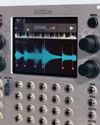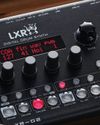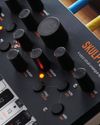
All genres evolve; some more than others. Ten years ago, the dominant view of trap would be that it was an offshoot of the all-new EDM phenomenon sweeping the USA. Ten years prior? A select few in the Deep South hip-hop scene might have understood the slang, if not necessarily thought of it as a genre. Now? It’s a mainstay of pop music as much as it’s a production style or a musical scene. Let’s dig back into the history and explain why genres aren’t always easy to pin down.
To understand trap in its original, hip-hop context, you would firstly need to consider the word itself. Originating in Atlanta, Georgia, ‘trap’ is a loosely defined slang term meaning a place where drugs are sold. The related concepts of trap houses and ‘trapping’, ie selling drugs, became common subject matter for a wave of ’90s southern rappers. In its first incarnation, trap music was referring simply to southern rap tracks whose lyrics covered drug-related subject matter.
Drug references in hip-hop go way back, most notably courtesy of Grandmaster Flash & Melle Mel’s 1983 hit White Lines (Don’t Don’t Do It), but there’s a fatalism and a nihilism to southern trap that sets it apart from the conflicted but often glorifying takes on drug dealing that you might find elsewhere. Take Texas rap duo UGK’s proto-trap 1992 hit Pocket Full Of Stones and you’ll get a sense of the unabashed way Southern rappers told stories of drug dealing: “Living real smooth like aloe vera lotion/I’m selling crack rock, the devil’s love potion...”
This story is from the {{IssueName}} edition of {{MagazineName}}.
Start your 7-day Magzter GOLD free trial to access thousands of curated premium stories, and 9,000+ magazines and newspapers.
Already a subscriber ? Sign In
This story is from the {{IssueName}} edition of {{MagazineName}}.
Start your 7-day Magzter GOLD free trial to access thousands of curated premium stories, and 9,000+ magazines and newspapers.
Already a subscriber? Sign In

SONIC DESTRUCTION
From overdriven signal paths to rhythmic malfunctions, there’s plenty of creativity to be found by doing things just a little bit wrong

Feed Me
EDM producer Jon Gooch revives his cartoonish Feed Me moniker. Danny Turner finds out how the use of live instrumentation changed his production approach

Exploring Akai MPC
Leo Maymind takes a detailed look at an iconic groovebox whose influence helped shape modern hip-hop and much more besides

Liars
Dissolving the contours of rock and electronics, Danny Turner charts the making of Liars’ 10th album with Angus Andrew and Laurence Pike

Jean-Michel Jarre
The pioneering musician who introduced generations to futuristic sounds the first time around is at it again. He joins Matt Mullen to talk experiments in VR gigging, spatial audio and more...

Noise
With roots as far back as 1913, noise is the genre that’s also a state of mind

1010 Music Bitbox mk2 £549
Rob Redman finds out whether this updated sampler box of tricks contains any more surprises

Erica Synths and Sonic Potions LXR-02 £499
Rob Redman braces himself for another resurrected blast from the past

Modal SKULPTsynth SE £169
Modal are back with an update to their SKULPT synth. Bruce Aisher takes a listen to see if it can rustle up a big sound

Reason Studios Reason 12 £399
Now in both DAW and plugin realms, Reason gains a sampler and refreshed Combinator. Si Truss investigates